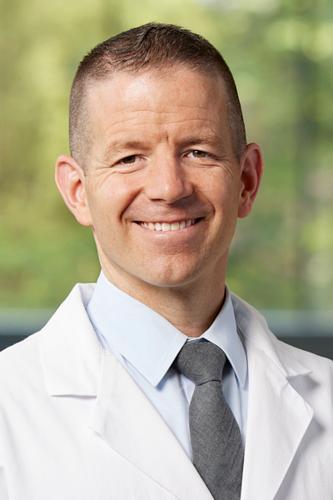Surgery is a common treatment for stomach cancer, which is also known as gastric cancer. Our surgical oncologists work with a team of other medical providers to help patients achieve the best possible outcome.
Procedures
Except for the earliest cancers, where endoscopic techniques can be employed to remove the cancer, surgery, with or without additional therapies, is necessary to achieve a cure for cancer of the stomach. Depending on the size and location of the tumor, it may be necessary to remove part of the stomach (partial gastrectomy), most of the stomach (subtotal gastrectomy), or in some cases, the entire stomach (total gastrectomy). Once the stomach is removed, the remaining organs are re-attached to allow patients to eat and drink normally. At the time of the operation, the surgeon will also remove nearby lymph nodes to better understand the stage of the cancer in order to determine whether additional therapies may be necessary when the patient has recovered.
Palliative surgery
In some cases, the cancer may have spread to another area of the body. In these cases, surgery is usually not able to provide a cure for the patient. However, sometimes a “palliative” surgery may be recommended to address symptoms of the cancer and improve overall quality of life. This might include surgery to remove a tumor that is making it difficult to eat, or placement of a stent from the esophagus to the stomach or from the stomach to the small intestine to make it easier to eat normally.
Procedures
Except for the earliest cancers, where endoscopic techniques can be employed to remove the cancer, surgery, with or without additional therapies, is necessary to achieve a cure for cancer of the stomach. Depending on the size and location of the tumor, it may be necessary to remove part of the stomach (partial gastrectomy), most of the stomach (subtotal gastrectomy), or in some cases, the entire stomach (total gastrectomy). Once the stomach is removed, the remaining organs are re-attached to allow patients to eat and drink normally. At the time of the operation, the surgeon will also remove nearby lymph nodes to better understand the stage of the cancer in order to determine whether additional therapies may be necessary when the patient has recovered.
Palliative surgery
In some cases, the cancer may have spread to another area of the body. In these cases, surgery is usually not able to provide a cure for the patient. However, sometimes a “palliative” surgery may be recommended to address symptoms of the cancer and improve overall quality of life. This might include surgery to remove a tumor that is making it difficult to eat, or placement of a stent from the esophagus to the stomach or from the stomach to the small intestine to make it easier to eat normally.
Gastric Cancer Surgeons
Teviah E. Sachs, MD, MPH

David B. McAneny, MD

Michael R. Cassidy, MD

Physician Assistants
Kelsey J. Burke, PA-C

Kayla Hakim, PA-C

